
Yangon: Gateway to Myanmar's Rich Heritage
Yangon, the largest city in Myanmar, is a fascinating blend of cultures and history. As you step into this city, you are greeted by a mix of colonial architecture, bustling markets, and serene Buddhist temples. The city is a melting pot of influences, from its British colonial past to its deep-rooted Buddhist traditions, making it a unique destination for travelers. A visit to Yangon is not complete without exploring the iconic Shwedagon Pagoda. This golden stupa, standing 99 meters tall, is believed to be over 2,500 years old and is the most sacred Buddhist pagoda in Myanmar. The beauty of the pagoda, especially when lit up at night, is a sight to behold and offers a peaceful retreat from the city's hustle and bustle. Yangon's charm also lies in its vibrant street life. Stroll through the lively Bogyoke Aung San Market, where you can find everything from traditional handicrafts to modern fashion. Street food enthusiasts will delight in the variety of local delicacies, such as mohinga (a rice noodle and fish soup) and laphet thoke (a fermented tea leaf salad). The city's diverse culinary scene is a testament to its rich cultural tapestry. For a glimpse into Yangon's colonial past, take a walk down Strand Road and admire the well-preserved buildings, including the Strand Hotel and the Customs House. These landmarks offer a window into the city's history and serve as a reminder of its colonial era. Additionally, a visit to the Yangon Circular Train provides an authentic experience of daily life in the city, as it takes you through various neighborhoods and offers a unique perspective on local living.
Local tips in Yangon
- Visit Shwedagon Pagoda early in the morning or late in the evening to avoid crowds and enjoy the serene atmosphere.
- Wear comfortable shoes as the best way to explore Yangon is on foot, especially around the downtown area.
- Try local street food but ensure it's from a clean and busy stall to avoid any health issues.
- Carry small denominations of the local currency, Kyat, as many small vendors do not accept credit cards.
- Be respectful of local customs, especially when visiting temples. Dress modestly, covering shoulders and knees.
- Use the Yangon Circular Train for a unique and affordable way to see the city's outskirts and experience local life.
Neighbourhoods in Yangon
Yangon: Gateway to Myanmar's Rich Heritage
Yangon, the largest city in Myanmar, is a fascinating blend of cultures and history. As you step into this city, you are greeted by a mix of colonial architecture, bustling markets, and serene Buddhist temples. The city is a melting pot of influences, from its British colonial past to its deep-rooted Buddhist traditions, making it a unique destination for travelers. A visit to Yangon is not complete without exploring the iconic Shwedagon Pagoda. This golden stupa, standing 99 meters tall, is believed to be over 2,500 years old and is the most sacred Buddhist pagoda in Myanmar. The beauty of the pagoda, especially when lit up at night, is a sight to behold and offers a peaceful retreat from the city's hustle and bustle. Yangon's charm also lies in its vibrant street life. Stroll through the lively Bogyoke Aung San Market, where you can find everything from traditional handicrafts to modern fashion. Street food enthusiasts will delight in the variety of local delicacies, such as mohinga (a rice noodle and fish soup) and laphet thoke (a fermented tea leaf salad). The city's diverse culinary scene is a testament to its rich cultural tapestry. For a glimpse into Yangon's colonial past, take a walk down Strand Road and admire the well-preserved buildings, including the Strand Hotel and the Customs House. These landmarks offer a window into the city's history and serve as a reminder of its colonial era. Additionally, a visit to the Yangon Circular Train provides an authentic experience of daily life in the city, as it takes you through various neighborhoods and offers a unique perspective on local living.
When is the best time to go to Yangon?
Iconic landmarks you can’t miss
Shwedagon Pagoda
Experience the spiritual heart of Myanmar at the stunning Shwedagon Pagoda in Yangon, a must-visit for every traveler.
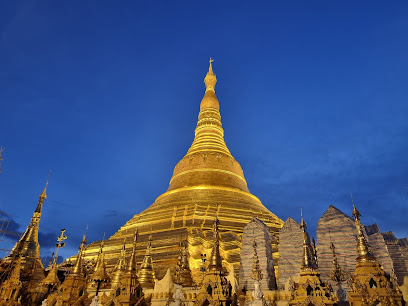
Myanmar Plaza
Discover Myanmar Plaza, Yangon’s ultimate shopping destination, blending local culture with a modern retail experience for every traveler.
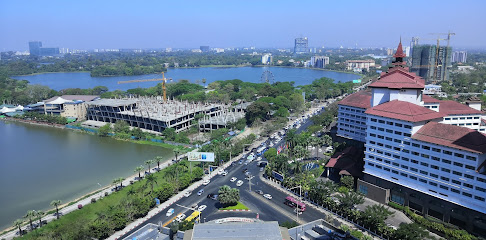
Bogyoke Aung San Market
Experience the vibrant culture and unique shopping at Bogyoke Aung San Market in Yangon, offering a rich array of local handicrafts and delicious street food.
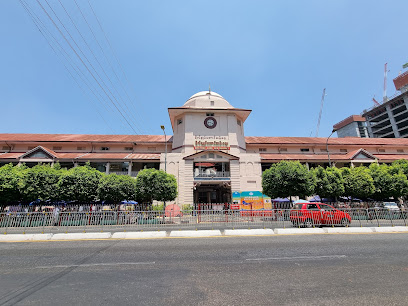
Sule Pagoda
Discover the serene beauty and rich heritage of Sule Pagoda, a 2000-year-old architectural marvel in the heart of Yangon, Myanmar.
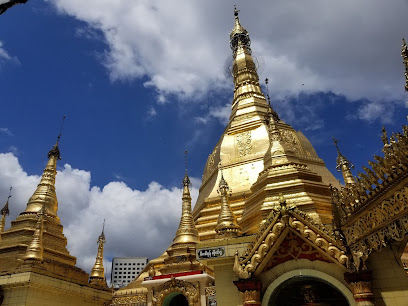
ပြည်သူ့ဥယျာဉ်
Discover the lush expanses of People’s Park in Yangon, a tranquil escape filled with vibrant flora and rich cultural heritage.
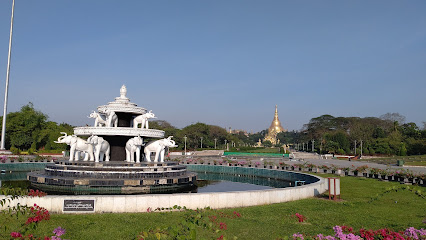
Yangon Zoo
Explore the enchanting Yangon Zoo, a wildlife haven in the heart of Myanmar, featuring diverse species and lush landscapes perfect for a family day out.
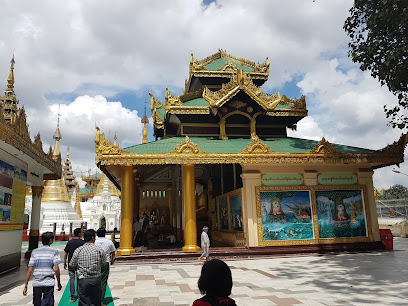
Kandawgyi Natural Garden
Explore Kandawgyi Natural Garden in Yangon, a beautiful park featuring lush landscapes, serene lakes, and stunning views of the Karaweik Palace.
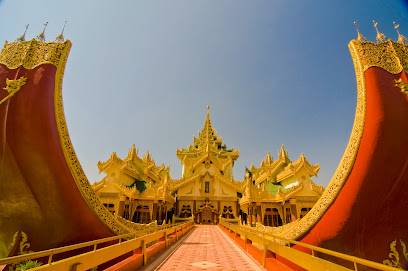
Chaukhtatgyi Buddha Temple
Discover the awe-inspiring Chaukhtatgyi Buddha Temple, a serene Buddhist sanctuary in Yangon that showcases the beauty of Myanmar's spiritual heritage.
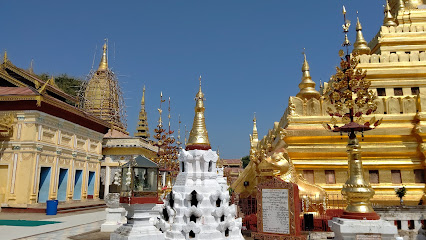
Pan Pacific Yangon
Discover luxury and cultural richness at Pan Pacific Yangon, your ideal destination for an unforgettable stay in Myanmar's vibrant capital.
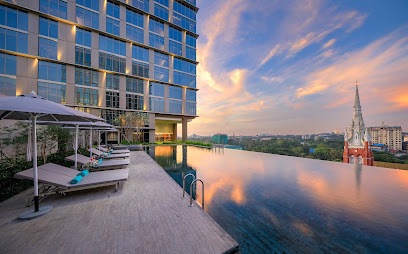
Thiri Mingala Kabar Aye Pagoda
Discover the serene beauty and cultural richness of Thiri Mingala Kabar Aye Pagoda, a must-see Buddhist temple in Yangon, Myanmar.
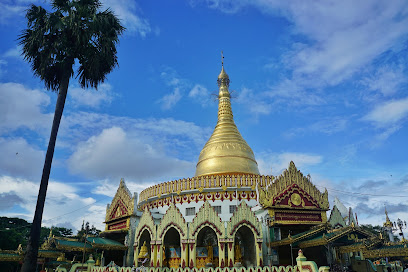
Maha Bandula Park
Discover the tranquil beauty and rich heritage of Maha Bandula Park in the heart of Yangon, an ideal escape for nature lovers and history enthusiasts.

Ga Mone Pwint
Discover Ga Mone Pwint, Yangon’s premier shopping mall offering diverse shopping, dining, and entertainment experiences.
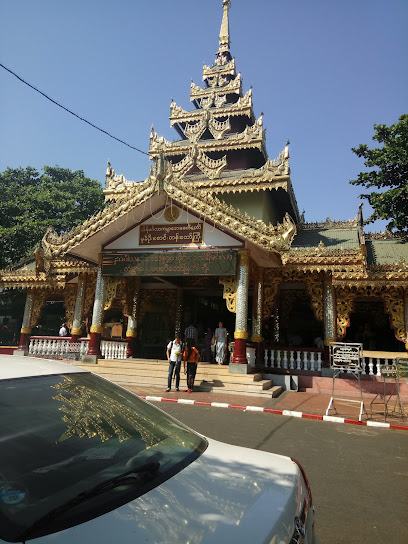
National Races Village
Explore the rich cultural heritage of Myanmar at the National Races Village, a vibrant ethnographic museum showcasing the nation's diverse ethnic communities.
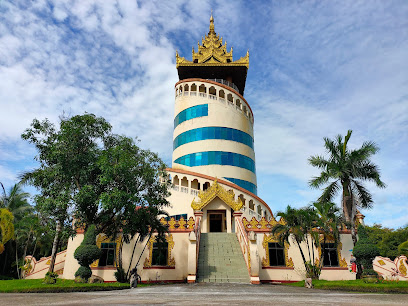
Kyaik Ka San Pagoda
Experience the spiritual essence and architectural beauty of Kyaik Ka San Pagoda, a must-visit Buddhist temple in the heart of Yangon.
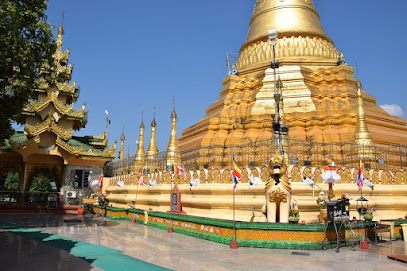
စိမ်းလန်းစိုပြည်
Experience the exquisite flavors of Burmese cuisine with stunning views of Inya Lake in Yangon, a culinary gem for every traveler.
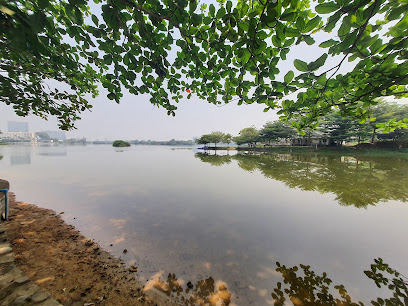
Unmissable attractions to see
Shwedagon Pagoda
Explore the Shwedagon Pagoda, a stunning symbol of Myanmar's heritage and spirituality, offering breathtaking views and rich cultural experiences in Yangon.
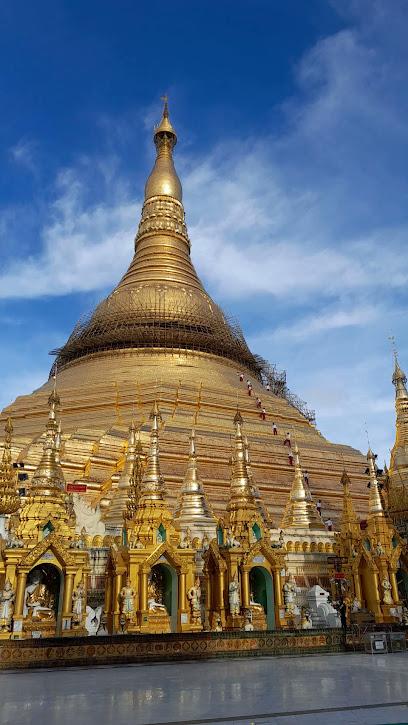
Sule Pagoda
Discover the spiritual heart of Yangon at Sule Pagoda, a stunning Buddhist temple rich in history and culture, inviting visitors into its serene embrace.
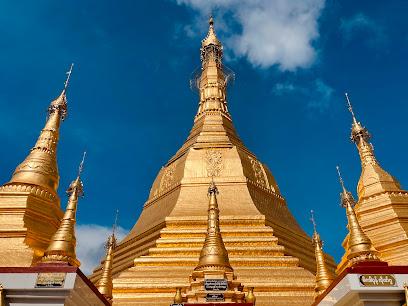
People's Park
Explore the lush landscapes and cultural gems of People's Park in Yangon, a serene oasis perfect for relaxation and sightseeing.
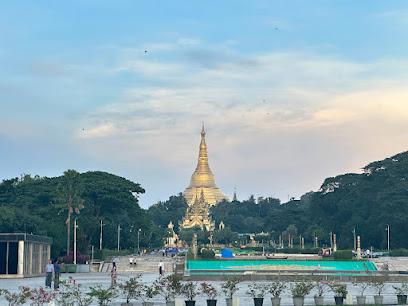
Kandawgyi Natural Garden
Discover the tranquil beauty of Kandawgyi Natural Garden, a serene haven in Yangon with stunning lake views and lush greenery.
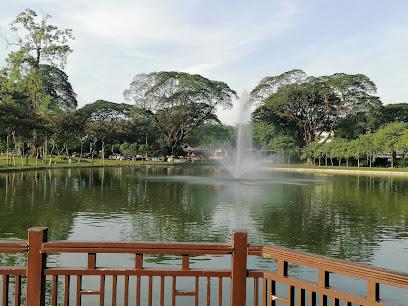
Thakhin Mya Park
Discover the tranquility of Thakhin Mya Park, a lush green sanctuary in Yangon, perfect for relaxation, nature walks, and family picnics.
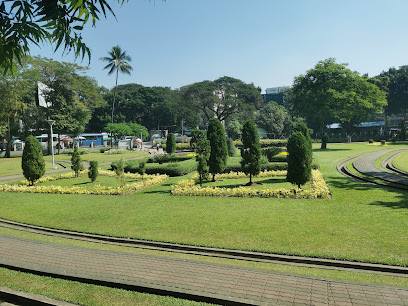
Chaukhtatgyi Buddha Temple
Explore the breathtaking Chaukhtatgyi Buddha Temple, home to a magnificent reclining Buddha and a serene spiritual atmosphere in the heart of Yangon.
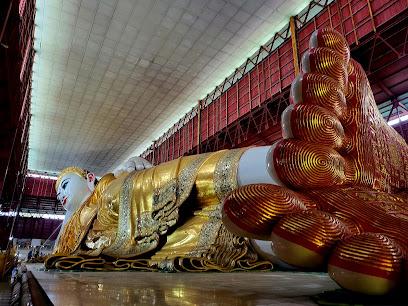
The Secretariat Yangon
Explore The Secretariat Yangon, a historical landmark showcasing Myanmar's colonial past and architectural beauty, perfect for history enthusiasts and travelers alike.
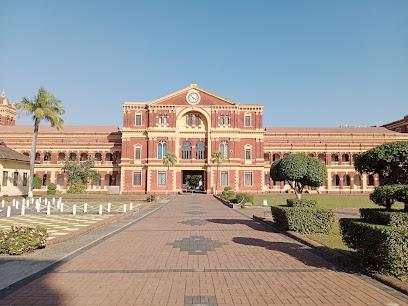
General Aung San Park
Discover the lush landscapes and rich history of General Aung San Park, a serene escape in the vibrant heart of Yangon.
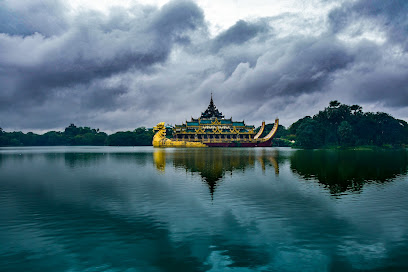
Thiri Mingala Kabar Aye Pagoda
Explore Thiri Mingala Kabar Aye Pagoda, a stunning Buddhist temple in Yangon offering tranquility, rich culture, and breathtaking architecture for all visitors.
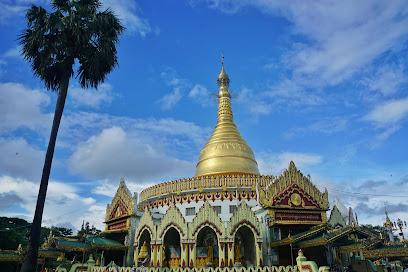
Maha Bandula Park
Experience the tranquility and cultural richness at Maha Bandula Park, a serene oasis in the heart of Yangon with stunning views and local charm.
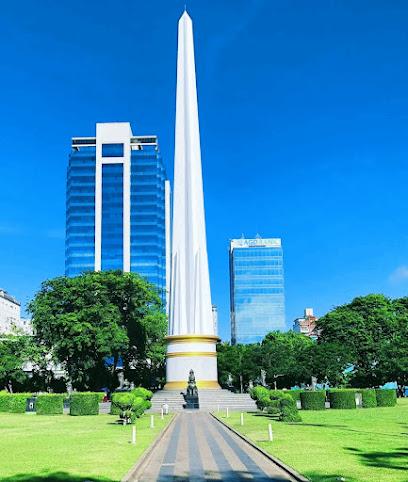
National Museum of Myanmar
Explore the National Museum of Myanmar, a treasure trove of history and culture showcasing the nation's vibrant past and artistic heritage.
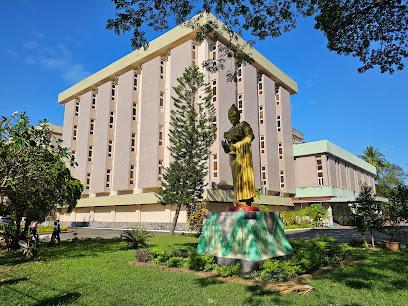
St. Mary's Cathedral
Explore the breathtaking St. Mary's Cathedral in Yangon, a stunning architectural gem and a serene place for reflection amidst the vibrant city life.
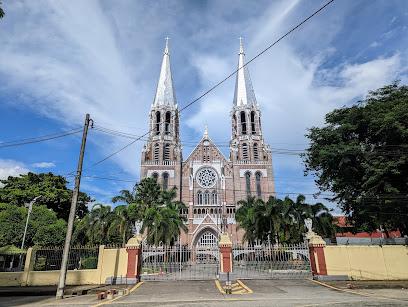
Yangon Water Boom
Experience the ultimate water adventure at Yangon Water Boom, Myanmar's top water park offering thrills, relaxation, and family fun for all ages.
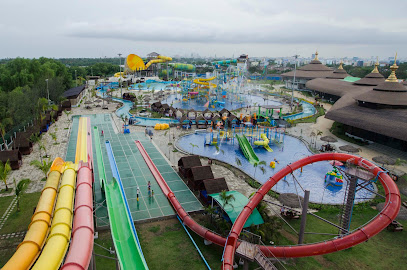
National Races Village
Explore the cultural richness of Myanmar at the National Races Village, an ethnographic museum showcasing traditional lifestyles and diverse heritage.
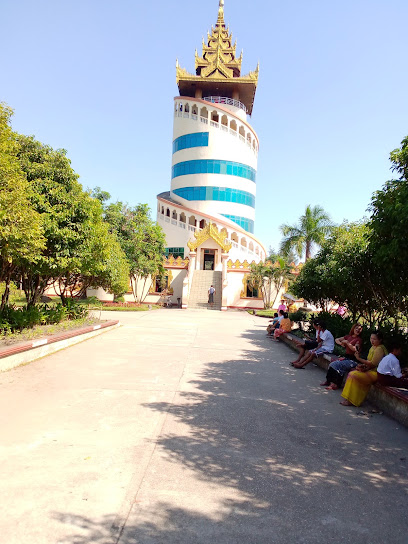
Swe Taw Myat Pagoda
Experience the spiritual and architectural wonders of Swe Taw Myat Pagoda in Yangon, a serene retreat reflecting Myanmar's rich cultural heritage.
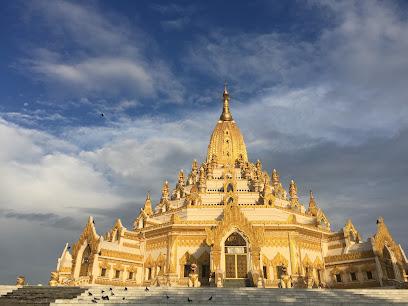
Essential places to dine
Feel Myanmar Restaurant (Pyidaungzu Yeiktha Street)
Savor authentic Burmese cuisine at Feel Myanmar Restaurant in Yangon – where every meal tells a story.
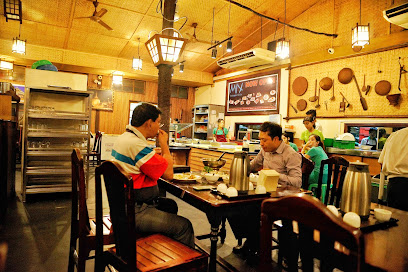
999 Shan Noodle House
Experience authentic Shan cuisine at 999 Shan Noodle House in Yangon – where every bowl tells a story!
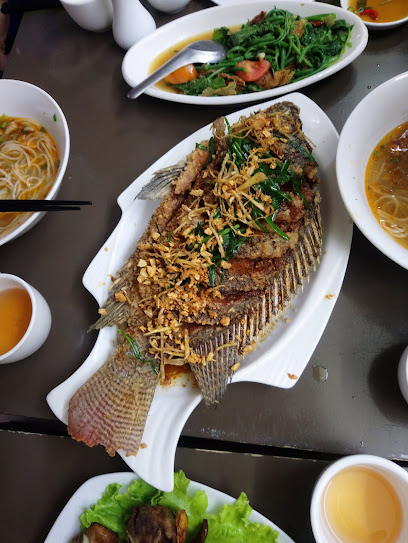
Shan Yoe Yar Restaurant (Manaw Hari)
Experience authentic Burmese cuisine at Shan Yoe Yar Restaurant in Yangon—where tradition meets flavor in every dish.
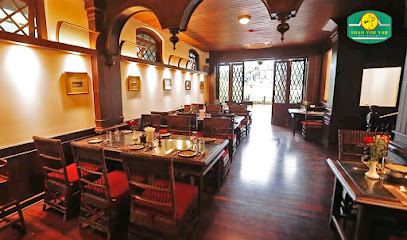
Signature
Experience exquisite Asian cuisine at Signature in Yangon - where every meal is a delightful culinary adventure.
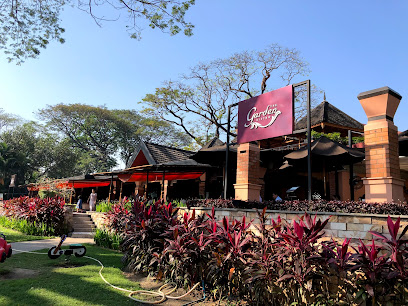
The Marina
Experience authentic Indian cuisine at The Marina in Yangon – where every meal is a celebration of flavors.
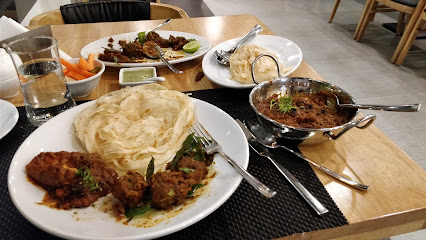
Aung Thu Kha Traditional Myanmar Food House
Experience the rich flavors of Burma at Aung Thu Kha Traditional Myanmar Food House – where tradition meets taste in every dish.
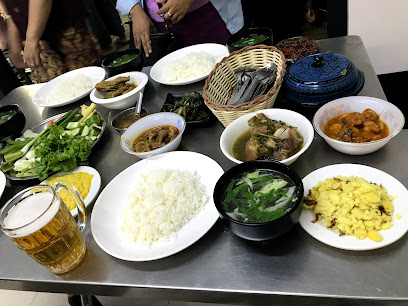
Golden Crab House Restaurant
Discover exquisite crab dishes and authentic Chinese flavors at Golden Crab House Restaurant in Yangon – a seafood lover's paradise.
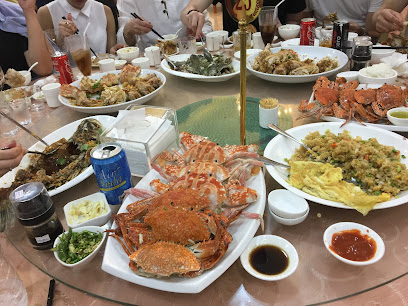
Golden Duck
Discover the flavors of China at Golden Duck, nestled in Yangon’s tranquil Kan Taw Mingalar Garden Compound.
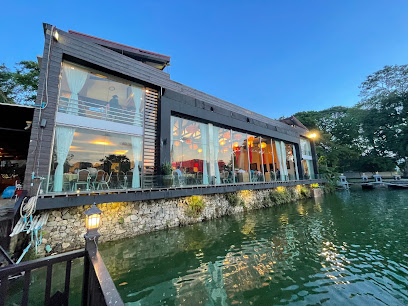
Omnivore by Sharky’s
Discover culinary excellence at Omnivore by Sharky’s - home of gourmet burgers, succulent steaks & fine wines in Yangon.
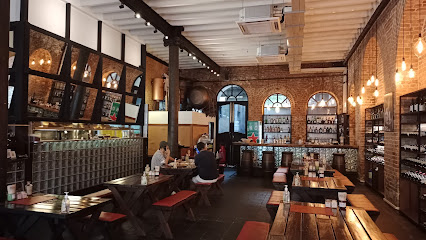
50th Street Restaurant & Bar
Experience the vibrant flavors of Myanmar at 50th Street Restaurant & Bar – where culinary tradition meets modern dining.
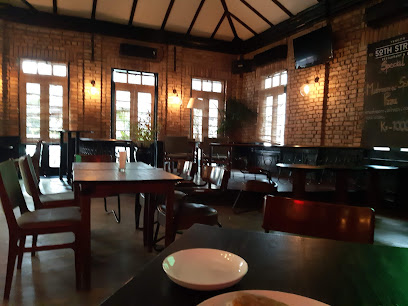
Ô'Thentic Brasserie
Discover the essence of Yangon dining at Ô'Thentic Brasserie - where bistro charm meets culinary creativity.
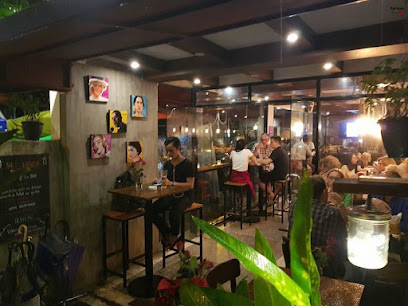
Babett Eatery & Bar Yangon
Discover the essence of Mediterranean cuisine at Babett Eatery & Bar in Yangon – where flavor meets ambiance.
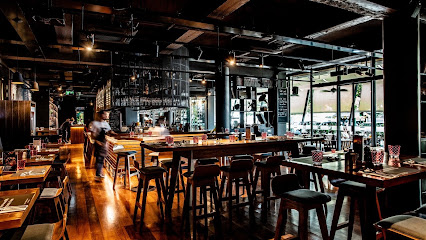
Burma Bistro
Discover authentic Burmese cuisine at Burma Bistro in Yangon - where tradition meets modern dining.
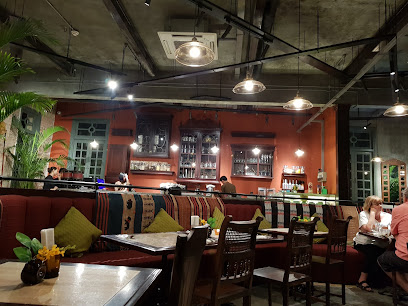
Le Planteur Restaurants & Lounge
Experience culinary excellence at Le Planteur in Yangon – where French fine dining meets serene elegance amidst lush surroundings.
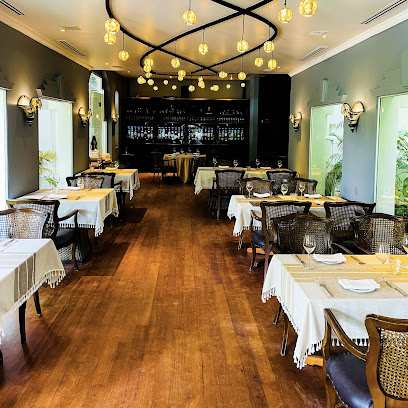
SEEDS Restaurant & Lounge
Discover fine dining at SEEDS Restaurant & Lounge in Yangon—where European culinary artistry meets local ingredients for an unforgettable experience.
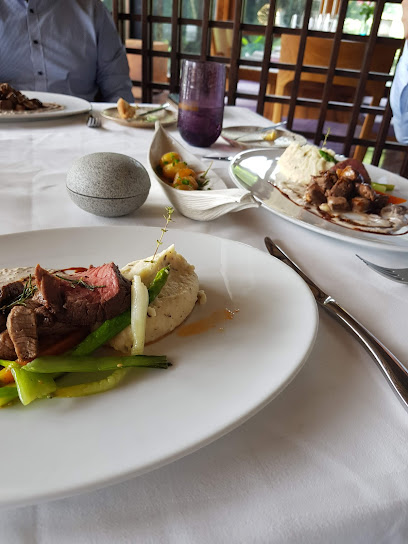
Markets, malls and hidden boutiques
Ocean Supercenter (City Mall St. John)
Discover Yangon’s vibrant shopping scene at Ocean Supercenter, where local flavors meet everyday essentials in a bustling hypermarket experience.
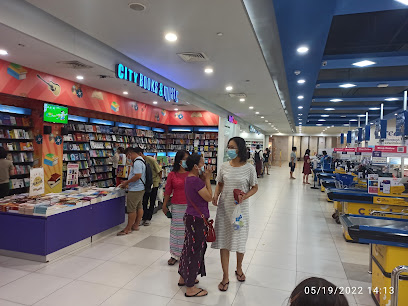
United Living Mall
Experience the vibrant shopping scene at United Living Mall in Yangon, where fashion, dining, and entertainment converge for an unforgettable visit.
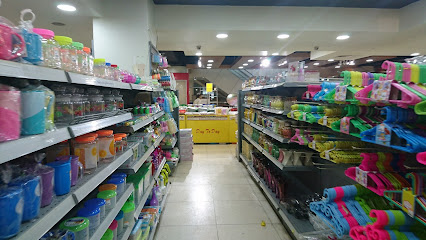
UNiQUE (U Chit Maung)
Explore UNiQUE (U Chit Maung) in Yangon for the best selection of mobile phones, accessories, and computer gadgets in a welcoming atmosphere.
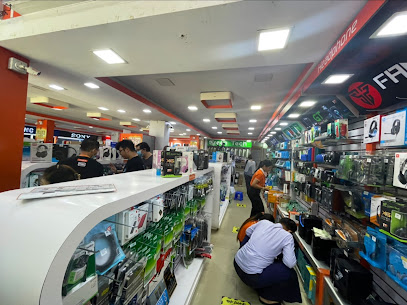
UNIQUE
Discover the best in mobile technology at UNIQUE, Yangon’s premier cell phone store with exceptional service and a wide selection.
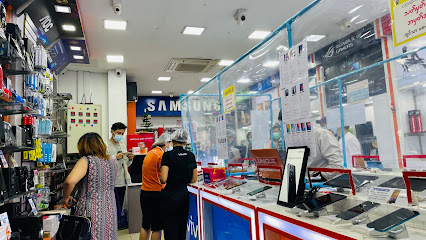
HLA DAY
Explore HLA DAY in Yangon, where unique handicrafts meet modern design, creating a charming shopping experience for tourists.
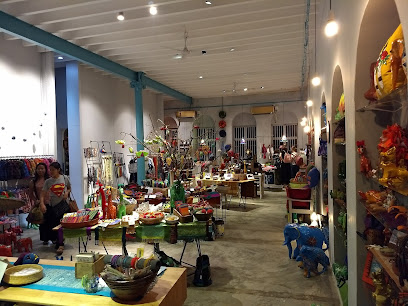
Yangoods Shan Gone Boutique
Explore Yangoods Shan Gone Boutique - a treasure trove of unique gifts and fashionable accessories in the heart of Yangon, showcasing Myanmar's rich culture.

The Classy Men Branded Collections
Explore a refined selection of men's fashion at The Classy Men Branded Collections in Yangon, where style meets sophistication.

Myanhouse Local Made ( Myanmar May )
Explore Myanhouse Local Made in Yangon for unique, authentic Myanmar souvenirs that reflect the region's rich culture and artistry.
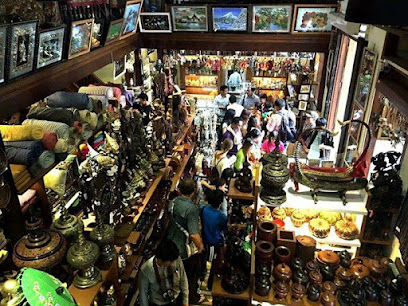
Yangoods Myanmar Plaza Branch
Discover unique gifts and fashion accessories at Yangoods Myanmar Plaza, where local craftsmanship meets modern style in Yangon.
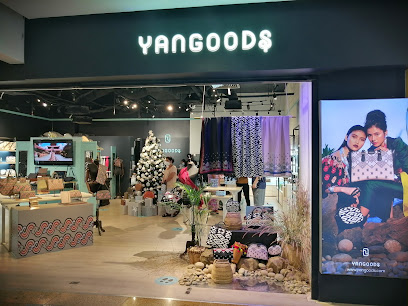
Myanmar Lacquerware Shop
Explore Myanmar's rich tradition of lacquerware at this stunning shop, showcasing exquisite craftsmanship and vibrant designs perfect for any home.
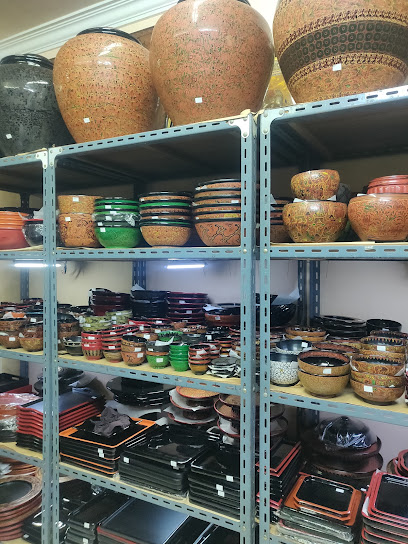
Chin Chili
Discover unique handcrafted souvenirs at Chin Chili, a premier gift shop in Yangon’s vibrant Bogyoke Market, showcasing Myanmar’s rich cultural heritage.
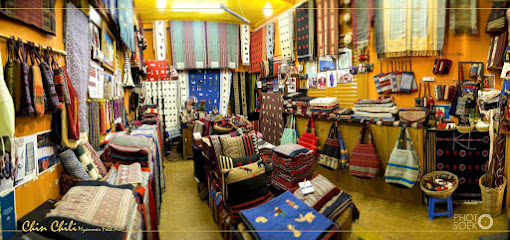
May Gift Shop
Explore May Gift Shop in Yangon for unique gifts, quality cosmetics, and beautiful flowers that capture the essence of Myanmar’s artistry.
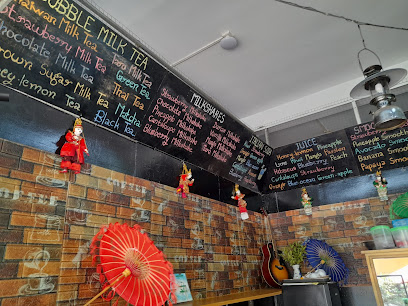
.
Discover unique fashion accessories in Yangon, blending modern trends with traditional elegance for a stylish experience.

Cherry Myaing Myanmar Souvenirs
Explore Cherry Myaing Myanmar Souvenirs for authentic handicrafts and unique gifts that capture the spirit of Myanmar's rich culture.
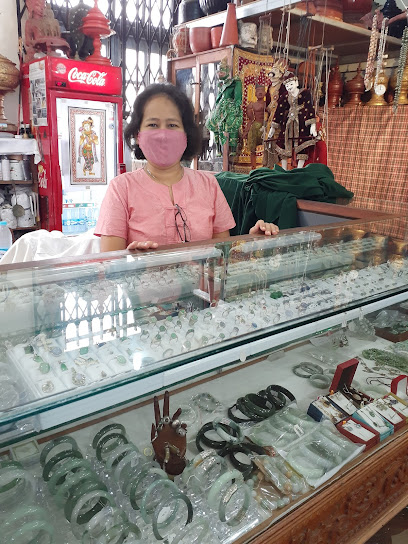
ဆရာသိန်းကွမ်းယာဆိုင်
Discover the artistic heritage of Myanmar at ဆရာသိန်းကွမ်းယာဆိုင်, where local craftsmanship meets vibrant culture in the heart of Yangon.

Essential bars & hidden hideouts
Harry's Bar
Experience the vibrant nightlife of Yangon at Harry's Bar, where delightful drinks and delicious cuisine await in a lively atmosphere.
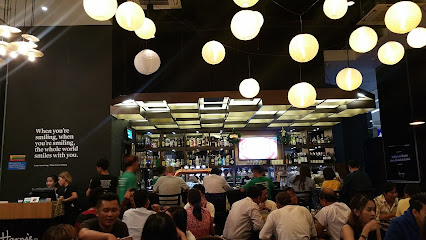
50th Street Restaurant & Bar
Discover the heart of Yangon at the 50th Street Restaurant & Bar, where delicious cuisine meets vibrant ambiance in a cultural dining experience.
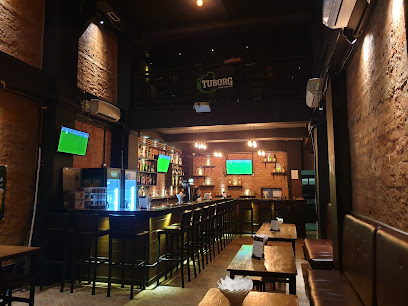
Vista Bar
Enjoy the vibrant nightlife of Yangon at Vista Bar, offering stunning views, great drinks, and a lively atmosphere for all travelers.
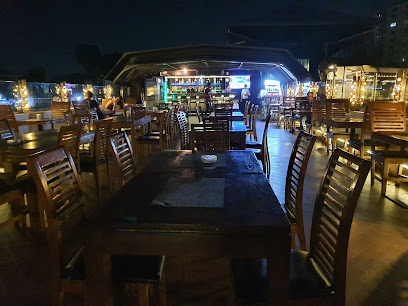
The Beer Factory Yangon
Discover a vibrant atmosphere at The Beer Factory Yangon, where local brews and delectable bites create an unforgettable night out.
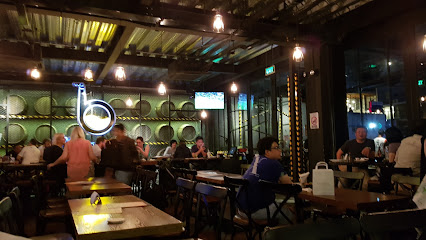
Byblos Pub & Grill
Experience the best of Yangon’s dining at Byblos Pub & Grill, where delicious grilled dishes, pizza, and a vibrant bar create unforgettable moments.
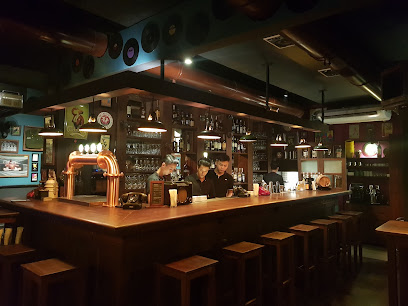
Atlas Rooftop Bar & Lounge
Experience stunning views and vibrant nightlife at Atlas Rooftop Bar & Lounge in Yangon, perfect for cocktails and delicious cuisine with a view.
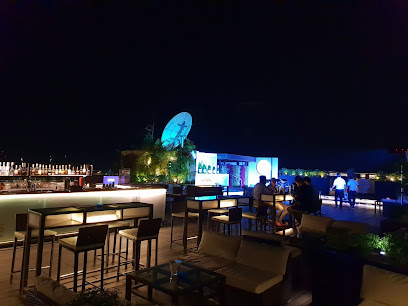
7th Joint Bar & Grill
Experience the vibrant nightlife at 7th Joint Bar & Grill in Yangon with delicious food, refreshing drinks, and live music in a warm, inviting atmosphere.
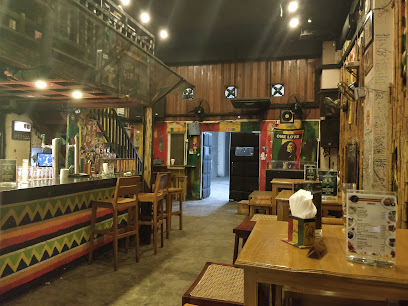
The Radio bar
Experience the vibrant nightlife of Yangon at The Radio Bar, where eclectic drinks and a lively atmosphere await every evening.
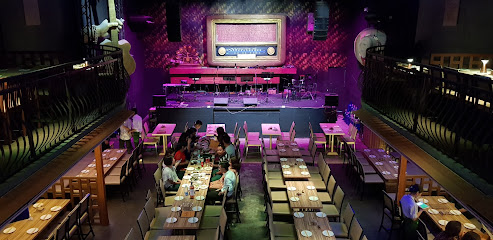
TIPSY
Discover TIPSY: A lively bar in Yangon offering a delightful mix of local beers and international cocktails in a vibrant atmosphere.
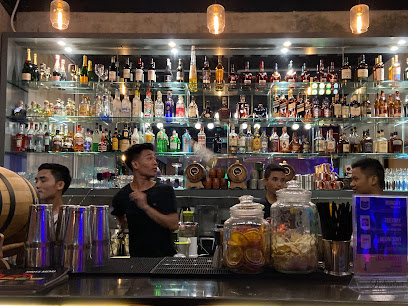
Yangon Yangon Rooftop Bar
Experience the enchanting views of Yangon at Yangon Yangon Rooftop Bar, a vibrant oasis for relaxation and socializing high above the city.
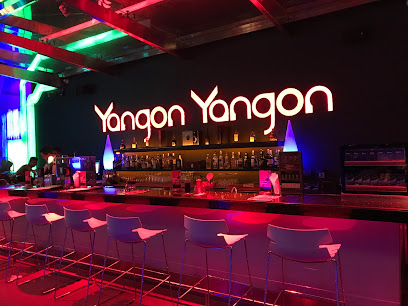
Blind Tiger
Experience the vibrant nightlife of Yangon at Blind Tiger, where innovative cocktails meet a cozy ambiance for a memorable evening out.
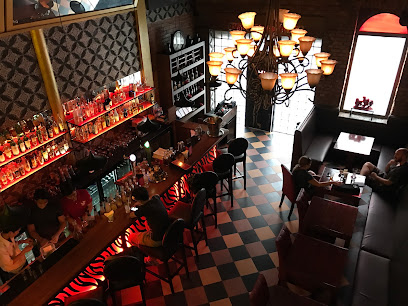
Roof Alchemy
Discover the enchanting views and innovative cocktails at Roof Alchemy, a top rooftop bar in Yangon, perfect for travelers seeking a unique nightlife experience.
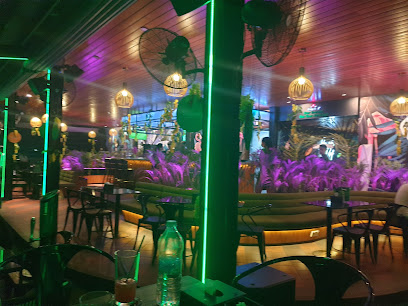
The Glass Yangon
Experience the vibrant flavors of The Glass Yangon, where delicious grilled dishes meet a warm and inviting atmosphere in the heart of the city.
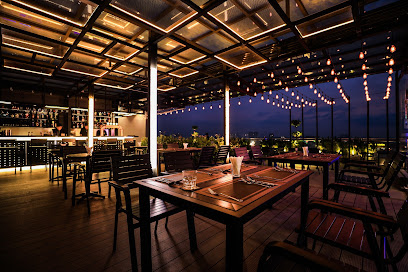
9 BAR
Discover the vibrant nightlife at 9 BAR in Yangon, where live music meets delicious food and drinks in a lively atmosphere.
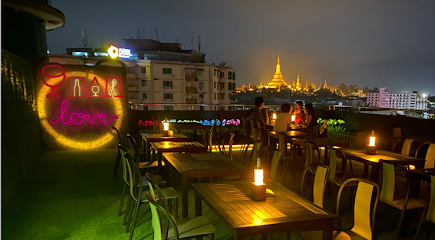
Local Phrases
-
- Helloမင်္ဂလာပါ
[mingalarbar] - Goodbyeသွေးပြီ
[swepri] - Yesဟုတ်ကဲ့
[hoatge] - Noမဟုတ်
[mahoat] - Please/You're welcomeကျေးဇူး
[chayzu] - Thank youကျေးဇူး
[chayzu] - Excuse me/Sorryခဏလို
[kanlou] - How are you?ဘယ်ဘက် ကျွန်တော်ရှိနေပါသလား
[behpak chontawshene pyarnebathal] - Fine. And you?အသိပါတယ်။ ဘယ်ကျွန်တော်အလဲ
[asitar te. behkontaw alae] - Do you speak English?အင်္ဂလိပ်တစ်ခု ဘာသာတာရှိနေပါသလား
[englisatkhuhwathashanpayanebathal] - I don't understandမသိမ်းမသိး
[masim masi]
- Helloမင်္ဂလာပါ
-
- I'd like to see the menu, pleaseမီနုနိုင်ဖို့ ကြည့်နိုင်ပါတယ်
[minunninphuinpyone kyaininba te] - I don't eat meatအသက်ကို မစားနိုင်
[asakkow masanin] - Cheers!ချီးပီးပီးတယ်
[chipyipyite] - I would like to pay, pleaseငွေပေးရန်လို့
[nepeyanele]
- I'd like to see the menu, pleaseမီနုနိုင်ဖို့ ကြည့်နိုင်ပါတယ်
-
- Help!အကူအညီ
[akuanai] - Go away!နောက်ဆုံး
[naushon] - Call the Police!ရောက်ရှိနိုင်ပါ
[raushaininba te] - Call a doctor!ဆရာဝန်ရှိနိုင်ပါ
[shayawarnainba te] - I'm lostမှာ့မဲ့သွား
[hmaimezwarr] - I'm illသေဆုံးပါသလား
[seishonpa thalae]
- Help!အကူအညီ
-
- I'd like to buy...ဝယ်ယူရန်လို့
[wayuyanele] - I'm just lookingကြွေးသောကြောင်လဲ
[kreithokaugonle] - How much is it?ဘယ်ဘက်အလဲလို့
[behpakalaelo] - That's too expensiveအရမ်းစရအလုပ်
[yamayitsaralup] - Can you lower the price?စျေးတုန်းနိုင်ပါသလား
[zaitonnan ninba thalae]
- I'd like to buy...ဝယ်ယူရန်လို့
-
- What time is it?ဘယ်ဘက်ကျွန်တော်နဲ့
[behpakchontaw ne] - It's one o'clockတစ်ရက်
[taikra] - Half past (10)ဆယ်လျှင့်
[saylhin] - Morningနန်းလန်
[nanlan] - Afternoonနေ့လန်
[neilan] - Eveningညနန်း
[yannan] - Yesterdayမနေ့က
[maneilka] - Todayယနေ့
[yanne] - Tomorrowမနက်
[manket] - 1တစ်
[taik] - 2နှစ်
[nhaik] - 3သုံး
[son] - 4လေး
[lei] - 5ငါး
[nga] - 6ခြောက်
[hawok] - 7ခုနစ်
[konchaik] - 8ရှစ်
[raichai] - 9ကိုး
[ko] - 10တန်း
[tan]
- What time is it?ဘယ်ဘက်ကျွန်တော်နဲ့
-
- Where's a/the...?ဘယ်ဘက်ကျွန်တော်...
[behpakchontawnaw...] - What's the address?ဘယ်ဘက်ရုံးလို့
[behpakroneloe] - Can you show me (on the map)?မြောက်တာရှိနိုင်ပါသလား
[myaoktaraishaininba thalae] - When's the next (bus)?ဘယ်နောက်ပြီးရှိနေပါသလား
[behnaukprishainepathalae] - A ticket (to ....)လက်မှတ်တင် လိုပါသလား
[lekmatantainlopathalae]
- Where's a/the...?ဘယ်ဘက်ကျွန်တော်...
History of Yangon
-
Yangon, formerly known as Rangoon, has its origins tracing back to the 6th century when it was a small fishing village named Dagon. The village was built around the Shwedagon Pagoda, an iconic religious site that holds great significance in Buddhism. The town was renamed 'Yangon' by King Alaungpaya in 1755 after he conquered Lower Burma.
-
Yangon fell under British rule during the First Anglo-Burmese War in 1824. However, it was not until the Second Anglo-Burmese War in 1852 that Yangon became fully integrated into British Burma. The British transformed Yangon into the capital of Burma, developing it into a major port and commercial hub. The city’s infrastructure, including the construction of wide streets, parks, and public buildings, was significantly influenced by British colonial architecture.
-
The Shwedagon Pagoda has been a symbol of Burmese identity and a site of political significance. In 1920, it was the focal point of the first student-led protest against British colonial rule, known as the Rangoon University Boycott. The pagoda remained an important site for political gatherings and protests, including the 1988 pro-democracy protests and the 2007 Saffron Revolution led by Buddhist monks.
-
During World War II, Yangon was occupied by Japanese forces from 1942 to 1945. The city suffered extensive damage due to bombing raids by the Allies. The occupation period was marked by hardship for the residents and significant disruption to the city’s infrastructure and economy.
-
Burma gained independence from British rule in 1948, and Yangon continued to be the nation’s capital until 2006. The post-independence era saw significant political instability and economic challenges. Yangon saw multiple military coups, the most notable being in 1962 and 1988. Despite these upheavals, the city remained a cultural and economic center of the country.
-
In recent years, Yangon has undergone rapid urbanization and modernization. The government’s decision to move the administrative capital to Naypyidaw in 2006 did not diminish Yangon’s importance as the country’s largest city and economic hub. Skyscrapers, shopping malls, and modern infrastructure now stand alongside colonial-era buildings, creating a dynamic and evolving urban landscape.
-
Yangon is a melting pot of cultures, with a diverse population including Burmese, Chinese, Indian, and other ethnic groups. The city is rich in cultural heritage, with numerous pagodas, temples, and colonial-era buildings. Festivals such as Thingyan (Burmese New Year Water Festival) and the Tazaungdaing Festival (Festival of Lights) are celebrated with great enthusiasm, showcasing the city’s vibrant cultural traditions.
Yangon Essentials
-
Yangon is served by Yangon International Airport (RGN), which is about 15 kilometers north of the city center. Direct flights are available from major cities in Asia, such as Bangkok, Singapore, Kuala Lumpur, and Beijing. From the airport, you can take a taxi or arrange for a hotel shuttle for transportation to the city center. The journey typically takes around 30-60 minutes depending on traffic.
-
Yangon has a variety of transportation options. Taxis are plentiful and relatively inexpensive; it is advisable to negotiate the fare before starting your ride. Grab, a ride-hailing service, is also available. For short distances, you can use trishaws or hire bicycles. Public buses and circular trains are economical ways to get around but might be confusing for newcomers. Renting a car is not recommended due to heavy traffic and different driving norms.
-
The official currency in Myanmar is the Kyat (MMK). While larger hotels, restaurants, and shops often accept credit cards, many smaller establishments do not. It is advisable to carry cash. ATMs are widely available in Yangon, but it is wise to inform your bank of your travel plans to avoid any issues. US dollars are also commonly accepted, especially for larger transactions, but they should be in pristine condition.
-
Yangon is generally safe for tourists, but it's essential to take standard precautions. Avoid walking alone at night in unfamiliar or poorly-lit areas. Petty crimes such as pickpocketing can occur in crowded places, so keep an eye on your belongings. Areas like Hlaing Tharyar are known for higher crime rates and should be avoided. Always use registered taxis or ride-hailing services for transportation.
-
In case of an emergency, you can dial 199 for police assistance, 192 for medical emergencies, and 191 for fire services. Most hospitals in Yangon have English-speaking staff, but it's advisable to have travel insurance that covers medical emergencies. For minor health issues, numerous pharmacies in the city offer over-the-counter medications.
-
Fashion: Do dress modestly, especially when visiting religious sites. Avoid wearing revealing clothing. Religion: Do respect local customs and traditions. Always remove your shoes and cover your shoulders and knees when entering temples and pagodas. Public Transport: Do be respectful and give up your seat to elderly passengers. Don’t eat or drink on public transport. Greetings: Do greet people with a slight bow or a nod. Avoid shaking hands with the opposite sex unless they initiate it. Eating & Drinking: Do try local delicacies and accept food offerings graciously. Don’t refuse hospitality, as it is considered impolite.
-
To experience Yangon like a local, visit the Bogyoke Aung San Market for a wide array of local goods, from clothing to jewelry. Engage with locals at tea shops, a traditional gathering spot. Don't miss a ride on the circular train for a glimpse into everyday life. Visiting Shwedagon Pagoda at sunrise or sunset offers a serene experience. Always carry a small umbrella, as sudden rain showers are common.
Trending Landmark in Yangon
Nearby Cities to Yangon
-
Things To Do in Kyaiktiyo
-
Things To Do in Hpa-An
-
Things To Do in Pyay
-
Things To Do in Ngapali
-
Things To Do in Mae Hong Son
-
Things To Do in Naypyidaw
-
Things To Do in Chiang Mai
-
Things To Do in Pai
-
Things To Do in Sukhothai
-
Things To Do in Kalaw
-
Things To Do in Inle Lake
-
Things To Do in Kanchanaburi
-
Things To Do in Bagan
-
Things To Do in Sittwe
-
Things To Do in Chiang Rai



















